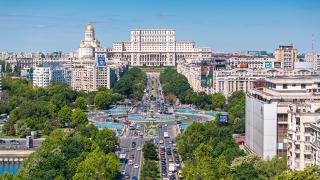The Turkish cement sector has experienced a challenging year on a number of levels. However, despite an increase in costs, the industry has managed to keep up the pace in terms of its contribution to the economy. Meanwhile, cement plant investments continue to support the EU’s climate and environmental policies, and the sector’s carbon roadmap is soon to be presented to the country. By TÜRKÇİMENTO, Turkey.
Since March 2020 to the present day, the effects of the COVID-19 pandemic have been felt by Turkey in every area, and particularly its economy. The Turkish government has had to resort to a number of measures, including social isolation to prevent the spread of the virus, while at the same time, fight against an economic contraction of an enormous scale. As with other countries across the world, various short-term measures were introduced in Turkey, starting with the sectors most affected by the pandemic. A number of sectors that were expected to be negatively affected by the virus from an early stage were covered by force majeure implementation in terms of taxation and social security obligations. Unfortunately, the cement sector was unable to receive such benefits.
